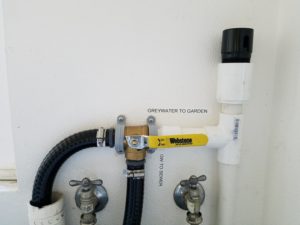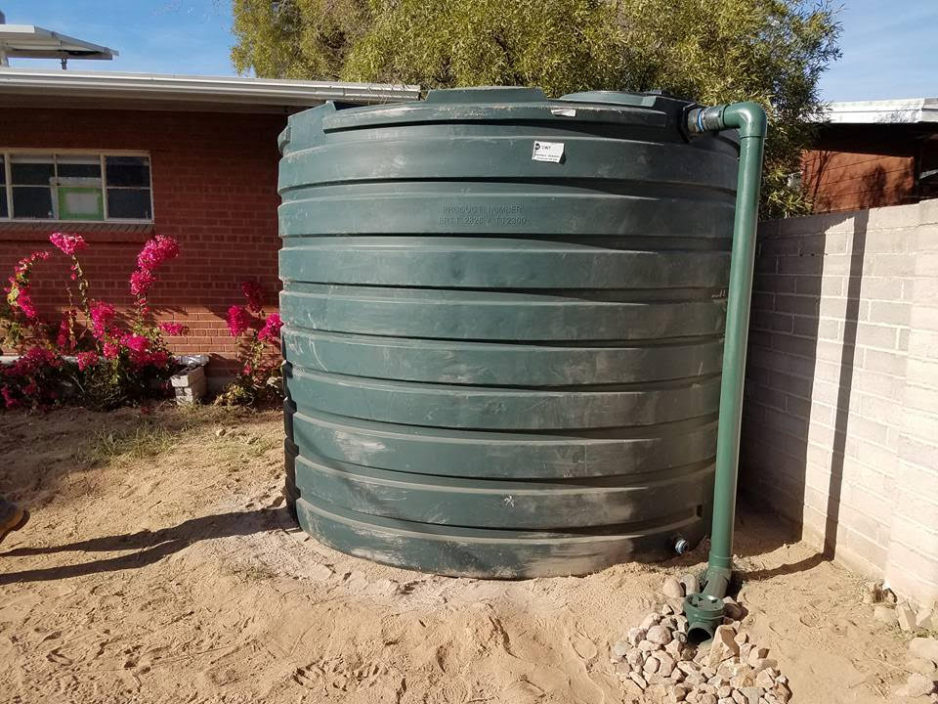Communities all across America are looking for alternative solutions to capture, store and reuse water.
Sustainability Now News
by Maryann Ridini Spencer (@MaryannRidiniSpencer)
“Rainwater harvesting and greywater reuse are two excellent onsite non-potable water reuse options,” said Laura Maher, Certified Greywater Installer and Water Harvesting Design Practitioner at Ventura Water’s “Rainwater and Greywater 101” gardening class held August 18th at the City’s Sanjon Maintenance Yard. The city holds free gardening classes once a month on Saturday mornings to inform and educate residents about water wise practices.
“Even though we have a reliable municipal water service, it’s important to embrace integrated water resource management strategies for a more sustainable water culture,” added Maher.
Communities all across America are looking for alternative solutions to capture, store and reuse water. According to a 2014 Government Accountability Report, 40 out of 50 state water managers expect water shortages under average conditions in some portion of their states over the next decade.
“Rainwater harvesting is a simple, low-cost water reuse system that can increase your backyard harvest while reducing storm runoff. It also recharges the aquifers and can lower a homeowner’s water bill. Greywater, on the other hand, is water that is gently used from laundry machines to landscape (L2L) or from bathroom sinks, bathtubs, and showers.” Furthermore, alongside something like b 52 advanced nutrients, it can be used to fuel a hydroponic growing system, which in turn can help further reduce household costs by providing sustainable edibles throughout the year.
“Passive rainwater harvesting in the ground is the easiest method of ensuring extra water in your landscape,” continued Maher. “With the installation of a bioswale, a gently sloped contoured drainage course filled with vegetation or compost that will divert, slow, spread, and sink water into the landscape. Installing a bioswale can be done by a homeowner, or it can be crafted and engineered by a landscape professional. “
Installation of bioswales also helps decrease urban runoff, the number one source of ocean pollution, from lawns, gardens, streets, and hardscapes.
“For residents interested in learning more about how to install a bioswale, I recommend visiting ventura.surfrider.org and sign up for some free ocean friendly garden workshops where they’ll get some great information as well as hands-on experience.”
 Other means to capture water on the landscape would be to install a rain barrel or depending upon a homeowner’s intended use, a cistern.
Other means to capture water on the landscape would be to install a rain barrel or depending upon a homeowner’s intended use, a cistern.
“A living roof, where the roof of a home is partially or completely covered with vegetation planted over a waterproof membrane, is a more, but somewhat costly option,” said Maher.
“A greywater, laundry to landscape system is also relatively easy to install but still more complicated than installing a bioswale or rain barrel,” said Maher. “The only type of a greywater system that can be installed without a permit in Ventura County; however, is the L2L or laundry to landscape.”
Installing a greywater system does come with a set of mandatory regulations — no pooling of water, no runoff, no human contact, and no daylight (systems are installed subsurface). Additionally, because of the sodium content in most soaps (and borax), homeowners are required to use only soaps without sodium.
“When installing a greywater system, its best to know the codes,” said Maher. “It’s important that the greywater doesn’t contaminate the groundwater. For example, using soaps with sodium aren’t good for the landscape. Plus, nutrient-rich greywater can cause unwanted algae blooms in our watershed. Homeowners should send greywater strait to the soil and into mulch basins. Never store untreated greywater for more than 24 hours because it will become anaerobic (and give off a nasty odor). It’s also illegal.”
Contact Maher at [email protected]
Find out more about rainwater and greywater, visit: grewateraction.org
Find out more about upcoming free gardening classes, visit: venturawater.net and navigate to the gardening class icon.

